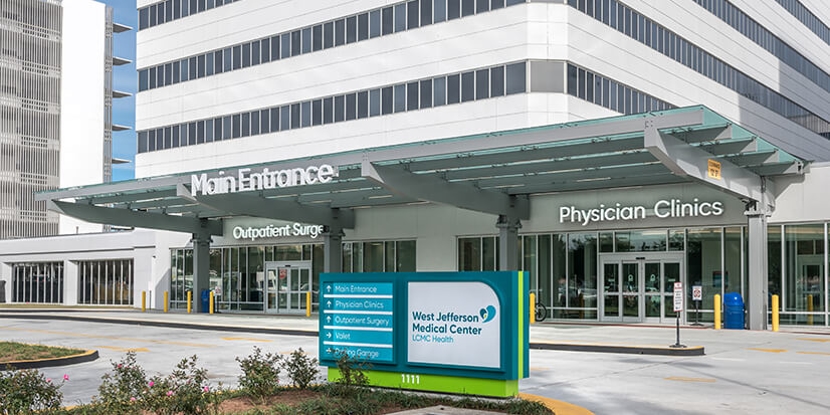Endoscopic Sinus Surgery
When sinus surgery is the right solution, West Jefferson is the right place to be
Nobody likes a stuffy or runny nose. But chronic sinusitis, nasal polyps, and other sinus-related problems are more complicated than that — and they’re more than just a nuisance. These conditions can cause real discomfort, breathing difficulties, and recurring infections.
You don’t have to suffer in silence. Our skilled team of ear, nose, and throat (ENT) specialists are here to provide advanced, effective solutions to meet your unique needs. If you need a more advanced treatment, endoscopic sinus surgery may be the best solution for you.
What is endoscopic sinus surgery?
Endoscopic sinus surgery is a minimally invasive procedure that uses a thin, flexible tube with a tiny camera (endoscope) to view and treat sinus issues. This approach allows for precise and targeted treatment while minimizing your discomfort and downtime.
This means the procedure is safer, there is less scarring, and you can recover faster. Our team will guide you through the sinus surgery procedure. We’ll make sure you are prepared for the day of surgery as well as the recovery period.
When is endoscopic sinus surgery appropriate?
Endoscopic sinus surgery is used most often when other treatments have proven unsuccessful or there are abnormal growths in your sinuses. These are examples of abnormal growths:
- Nasal and sinus tumors
- Nasal polyps
- Overgrown tissue
- Thick mucus membranes
- Thick pieces of bone
Types of endoscopic sinus surgery
Depending on your situation, you may need one of these procedures:
- Balloon sinuplasty — This procedure involves inserting a small balloon into the sinus cavity and inflating it to open blocked sinus passages. Balloon sinuplasty is a less invasive option than FESS and promotes faster recovery.
- Functional endoscopic sinus surgery (FESS) — FESS is the most common type. It aims to improve sinus drainage, remove nasal polyps, and correct structural abnormalities that obstruct sinus passages.
- Image-guided surgery — Image-guided endoscopic sinus surgery uses advanced imaging technology to provide real-time mapping of the sinus anatomy. This precision allows surgeons to navigate complex structures with high accuracy, ensuring optimal results.
What to expect before surgery
There are three components to the preoperative period. These include:
- Consultation — Your journey begins with a comprehensive assessment where our specialists evaluate your symptoms, learn your medical history, and conduct necessary tests to accurately diagnose your condition.
- Personalized treatment plan — Based on your diagnosis, a personalized treatment plan is created to address your specific needs and concerns.
- Preoperative instructions — Before your surgery, we’ll provide details about how you need to prepare for the procedure. These instructions typically include fasting guidelines and medication adjustments, if necessary.
What to expect after surgery
The postoperative period also consists of three components. These include:
- Recovery — Most patients have minimal discomfort and can resume regular activities within a few days. Your surgeon will provide personalized postoperative care guidelines. Be sure to follow the doctor’s orders for a smooth recovery.
- Follow-up visits — Before leaving the hospital, we schedule your follow-up appointments to monitor your progress, ensure proper healing, and address any questions or concerns you may have.
- Improved quality of life — With successful endoscopic sinus surgery, patients often enjoy improved breathing, reduced congestion, and enhanced overall well-being.
At West Jefferson Medical Center, we’re committed to helping you breathe easier and live your best, healthiest life. From consultation through follow-up, we’re with you every step of the way. To explore all your treatment options, call us directly at 504.934.8550 or schedule an appointment online.

